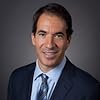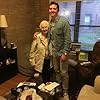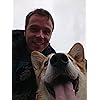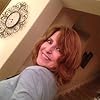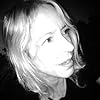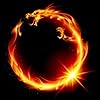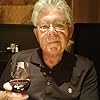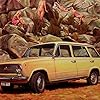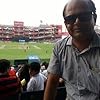Jeffry Schneider
asked:
What's the most fascinating tidbit of information you learned from this book?
To answer questions about
A Short History of Nearly Everything,
please sign up.
Eden
there are
three stages in scientific discovery: first, people deny that it is true; then they deny that it is
important; finally they credit the wrong person.
three stages in scientific discovery: first, people deny that it is true; then they deny that it is
important; finally they credit the wrong person.
Thomas
Oh so much could be said here. I think his first few chapters on the expansiveness of the universe is what sets this book apart. Understanding how small and insignificant you are is a humbling experience.
Anders Nordbø
@Thomas Harayda While I agree, I also found the opposite to be true. After reading this book I had a better sense of how enormous we are in comparison to all the things that live in/on our bodies. http://discovermagazine.com/2007/jun/...
In my opinion this book is a lot about grasping scale, or as a reader at least trying to do so.
In my opinion this book is a lot about grasping scale, or as a reader at least trying to do so.
Margaret Lukens
One thing I found especially interesting was the personalities of the people who forged new paths in science. Some were brilliant and modest. Some were scoundrels, greedy for credit. Some were wrong but praised in their lifetimes (Lord Kelvin) based on the force of their personalities. Others made brilliant discoveries but were shouted down by various established interests. It gave me (and I hope will give other readers) a better sense of how hard it can be to do good science, and how those we often study in school are not as important as those who in their lifetimes retired to the sidelines.
Deborah Lenny
That Yosemite is basically one large volcano that is overdue to erupt!
Ankur Bhattacharya
To be quite honest, I think almost every chapter has fascinating information. However, one of my favorites is the part describing the creation of protein.
Prasoon Jha
An average adult contains 7*10^18 joules of energy enough to explode with the energy of 35 hydrogen bombs. An uranium bomb also liberates only 1% of this energy!
Jgood29
It appears we moved up on land to avoid the sharks!
Laura Trussell
As a science-dilettante, I found nearly all of Bryson’s book wondrous and mind-blowing. Now that I’ve settled down and looked back, I think the parts about the unlikeliness and evolutionary importance of slime-molds (I’m not kidding) was among the most enlightening for me. His telling of early “physicists” and geologists and their dare-devil searches and experiments is a continuous and sometimes heart-breaking thrill. The gently humorous way he describes the end-of-life agonies of many or most of these discredited discoverers of wonders shows his empathy. If Bryson doesn’t fully understand what he’s writing about, all is forgiven, as he admits that right at the beginning.
Martin R. Ufford
Every cell in our body has 2 meters of DNA wrapped around itself inside it.
Alex
I loved all the little and sometimes crazy facts about some of the smarted and most importent people in the history of science. Learning about their lives and achievements made it all feel quite personal and that made a big impression on me.
Jerry Baird
How lucky we are to have a civilization and planet among the millions of galaxies and the depth of science over the past 5o years. I loved this book and have learned more in these 599 pages than any other read in my lifetime. We ourselves are a universe built on evolution and scientific principles.
Michael Kendall
I found it quite arresting that if i were to pick myself apart with a pair of tweezers, into my constituent components, hydrogen, nitrogen, etc, all of it was once me, none of which was ever alive.
Toosje
The fact that 1 person is responsible for 2 inventions that turn out to be some of the most devastating for the planet and the person trying to stop it never got any recognition. There is enough tragedy in this for a whole new book.
Currently only halfway in the book, but I would recommend it to anyone just based on this first half.
Currently only halfway in the book, but I would recommend it to anyone just based on this first half.
teo
Celsius scale being upside down at first.
joyce
This answer contains spoilers…
(view spoiler)
Hemant Rao
So far. that Einstein was rejected not only for lecturer ship, bit also for high school teacher, even after he had published his relativity papers!! he was not promoted in swiss patent office from examiner third class to second class.
About Goodreads Q&A
Ask and answer questions about books!
You can pose questions to the Goodreads community with Reader Q&A, or ask your favorite author a question with Ask the Author.
See Featured Authors Answering Questions
Learn more
